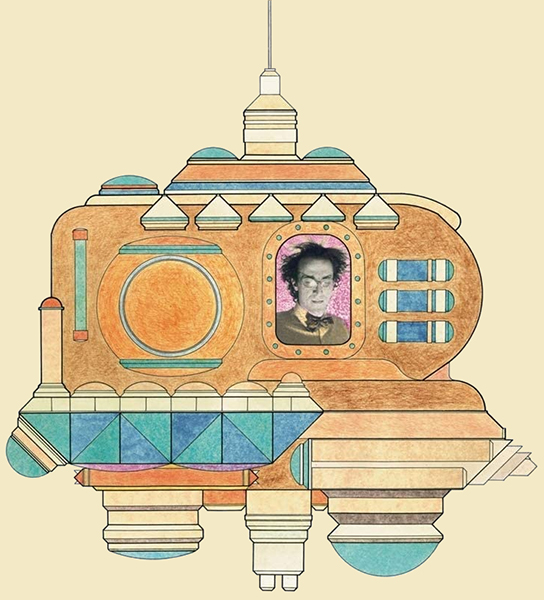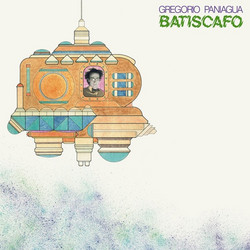Gregorio Paniagua - Batiscafo
The reissue market has become a driving force of our times, offering overdue reappraisal to countess albums that have unjustly suffered from historical neglect. As much as we’ve been lucky to see emerge, there’s still plenty of work to be done. Some geographies, movements, and scenes have been offered a remarkable amount of clarity and focus, while others remain mysterious and obscure. Notably among the later, are the wild and unpredictable efforts of a generation of Spanish artists who unfurled their talents across the late 1970s and '80s, seemingly working in a world that was entirely of their own making. At the forefront of it all was Gregorio Paniagua, whose 1980 masterstroke, Batiscafo, has received the reissue treatment from Munster Records. Entirely singular, 40 years on it still manages to bend the mind and pulls the rug from everything we think we know.
Gregorio Paniagua is a fascinating figure in Spanish music. Classically trained on cello and viola da gamba, in addition to bending his considerable talents to vihuela, lute, and hurdy gurdy, much of his career has been dedicated to Atrium Musicae De Madrid, an ensemble specializing in the realisation of ancient European music that he founded in 1964. Belonging to a musical family, he is the brother and collaborator of Luis Paniagua, whose records also hold legendary status for fans of Spanish experimental and ambient music. Released in 1980 by Hispavox, with original copies virtually unobtainable, the reemergence of Batiscafo presents one of the great missing links in Spanish experimental music. Not only does anticipate the wave of avant-gardism that grew over the coming years, defined by seminal figures like Suso Sáiz, Pep Llopis, Ishinoana, and Finis Africae, but it sounds like almost nothing else, from anywhere, before or since.
Through its sublime singularity, Paniagua’s Batiscafo unveils one of the true forces behind the reissue market. Some artists are so ahead of their own times that it takes decades, and often an entirely new generation, for them to be understood. Remarkably, even with four decades having past, the album still feels like a jarring artifact from some unknown future. Recorded over a single month, shut away in a studio at night, all of the instruments and actions, stretching across these two visionary sides, were played by Paniagua on his own. Not dissimilar conceptually from some of his peers working in Italy, Batiscafo is the product of a radical form of hybrity. Completely impossible to nail down, it intertwines the kind of cycling tonalities deployed by minimalists like Terry Riley, with hypnotic, almost tribal percussiveness and modal flirtations with countless ancient musics from across the globe. The result is an off kilter, wild ride that pushes right through the left field into an entirely new imagining of the forth world. This is minimalism that puts you in a trance and makes you want to dance.
Needless to say, this one totally blows us away. Some very necessary light shown on the Spanish musical vanguard at the outset of the '80s and one of its great artists, Munster has definitely done it again. This first time reissue of Paniagua’s lost classic includes facsimile artwork and extensive liner notes. Remastered from the original tapes and pressed on 180g vinyl. Absolutely essential and not to be missed. Don’t sleep.

